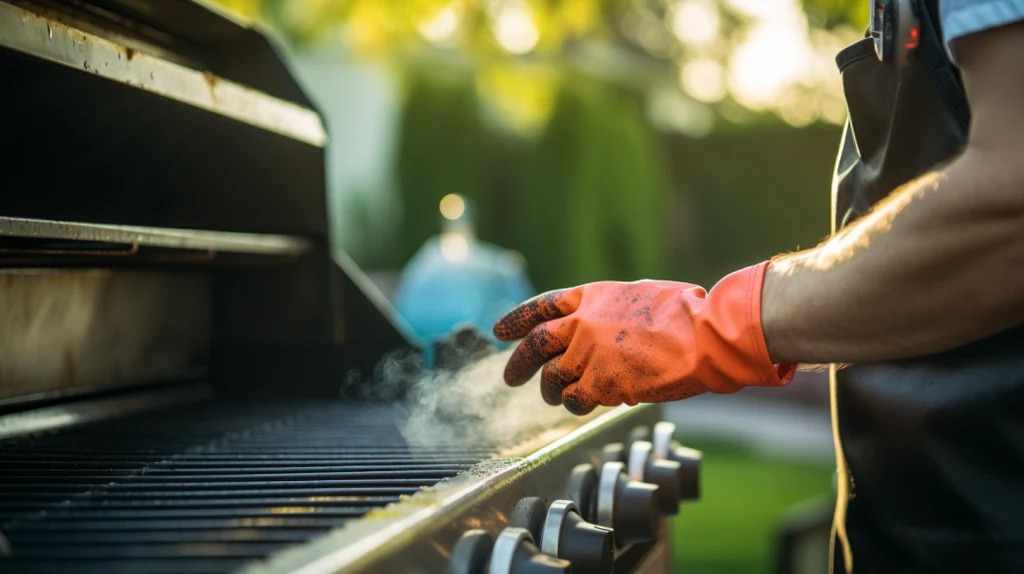Knowing exactly how long to cook ribs on a gas grill at 300 degrees can make a tremendous difference in your barbecue experience. This guide will walk you through the process step by step, ensuring you achieve perfectly cooked ribs each time you fire up your grill.

Understanding the Basics
Cooking ribs on a gas grill requires attention to detail and a good understanding of the grilling process. Gas grills are popular for their convenience and ability to control temperature precisely, making them ideal for cooking ribs at a steady 300 degrees.
The Importance of Temperature
Maintaining a constant temperature of 300 degrees is crucial for evenly cooked ribs. If the temperature varies too much, it can lead to overcooked or undercooked ribs, affecting their texture and flavor.
Types of Ribs
There are different types of ribs you can cook on a gas grill, and each type requires slightly different cooking times.
- Baby Back Ribs: These are smaller and cook faster.
- Spare Ribs: These are larger and take longer to cook.
- St. Louis Style Ribs: A popular choice for grilling, requiring moderate cooking time.

Preparation Tips
Before you start grilling, proper preparation can make all the difference. Here are some essential steps:
Seasoning Your Ribs
Season your ribs generously with a dry rub or marinade. Allow them to sit for at least an hour, or overnight if possible, for maximum flavor infusion.
Preheat Your Grill
Preheating your gas grill to 300 degrees ensures an even cooking temperature. A well-preheated grill will prevent the ribs from sticking and promote caramelization.

Grilling Process
Now that everything is prepared, it’s time to start grilling. Follow these steps for perfectly cooked ribs:
Step 1: Indirect Heat
Place the ribs on the grill using indirect heat. This means turning off the burners directly under the ribs and only using the outer burners. This method mimics slow-cooking and prevents flare-ups.
Step 2: Cooking Time
The cooking time for ribs at 300 degrees can vary depending on the type and size of the ribs. Generally, it takes about 2.5 to 3 hours to cook baby back ribs and 3 to 4 hours for spare ribs.
Step 3: Monitoring Temperature
Use a meat thermometer to monitor the internal temperature of the ribs. Aim for an internal temperature of 190-203 degrees. This range ensures the meat is tender and juicy.
Finishing Touches
Once the ribs are nearly cooked, you can add finishing touches to enhance their flavor.
Basting with Sauce
During the last 30 minutes of cooking, baste the ribs with your favorite barbecue sauce. The sauce will caramelize, creating a delicious, sticky glaze.
Resting Period
After removing the ribs from the grill, let them rest for about 10 minutes. This allows the juices to redistribute, making the ribs more tender and flavorful.
Common Mistakes to Avoid
Avoid these common pitfalls to ensure your ribs turn out perfectly every time.
Skipping the Preheat
Skipping the preheat step can result in uneven cooking and sticking. Always preheat your grill to 300 degrees before placing the ribs on the grates.
Cooking on Direct Heat
Cooking ribs on direct heat can cause flare-ups and uneven cooking. Use the indirect heat method for the best results.
Not Monitoring Temperature
Using a meat thermometer ensures you don’t undercook or overcook your ribs. Monitoring the internal temperature is key to achieving the perfect texture.
Serving Suggestions
Pair your perfectly cooked ribs with these delicious sides:
- Coleslaw
- Grilled Corn
- Potato Salad
- Baked Beans
FAQs
How can I tell when ribs are done on the grill?
The best way to tell if ribs are done is by using a meat thermometer. The internal temperature should reach between 190-203 degrees for perfectly cooked ribs.
Should I wrap my ribs in foil?
Wrapping ribs in foil, often referred to as the ‘Texas Crutch’, can help keep them moist and speed up the cooking process. This is optional but recommended for tender results.
Can I use other seasonings besides barbecue sauce?
Yes, you can use various dry rubs or marinades to season your ribs. Feel free to experiment with different flavors to suit your taste.
Internal Links
External Link
As an Amazon Associate, I earn from qualifying purchases.


